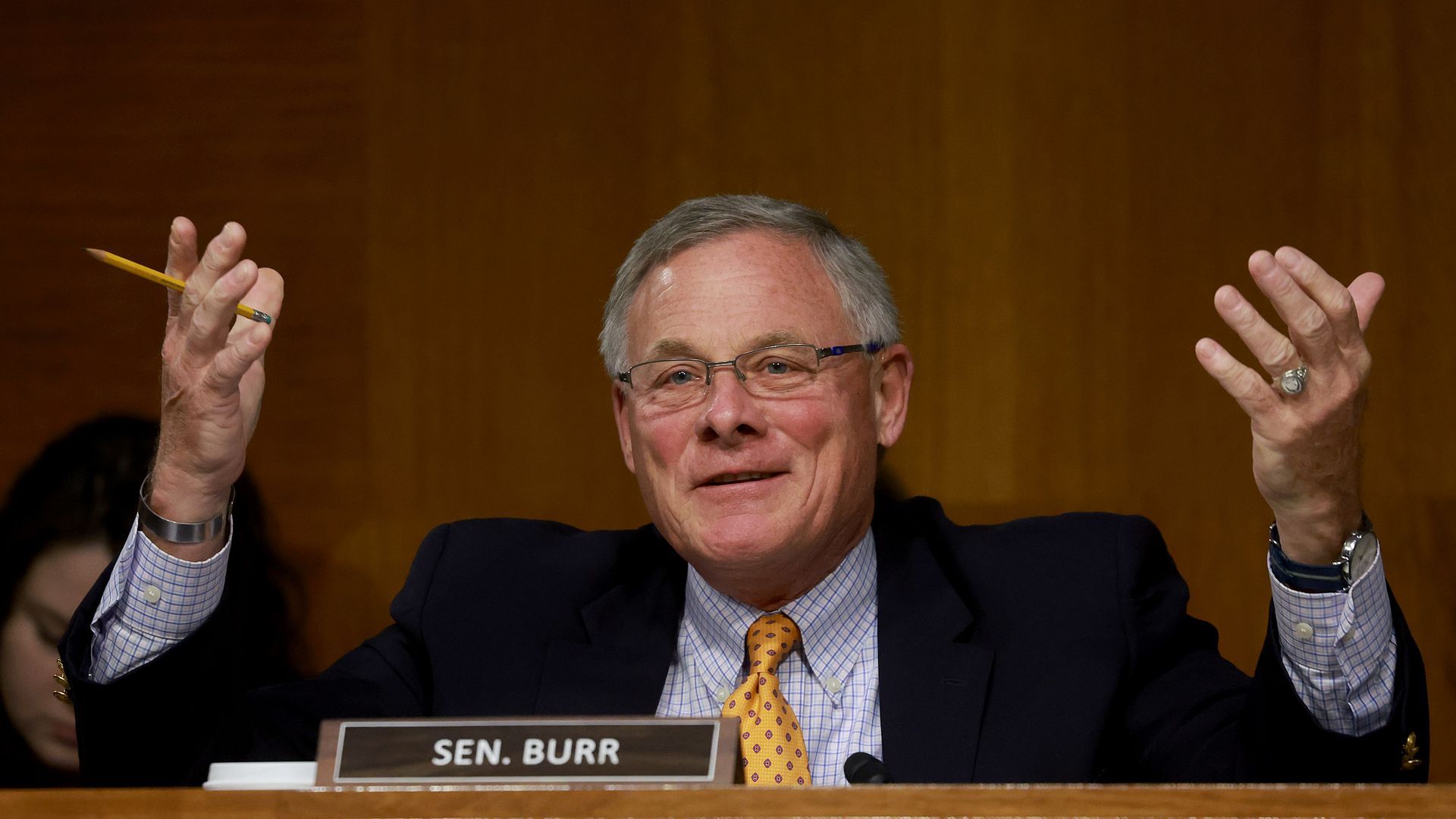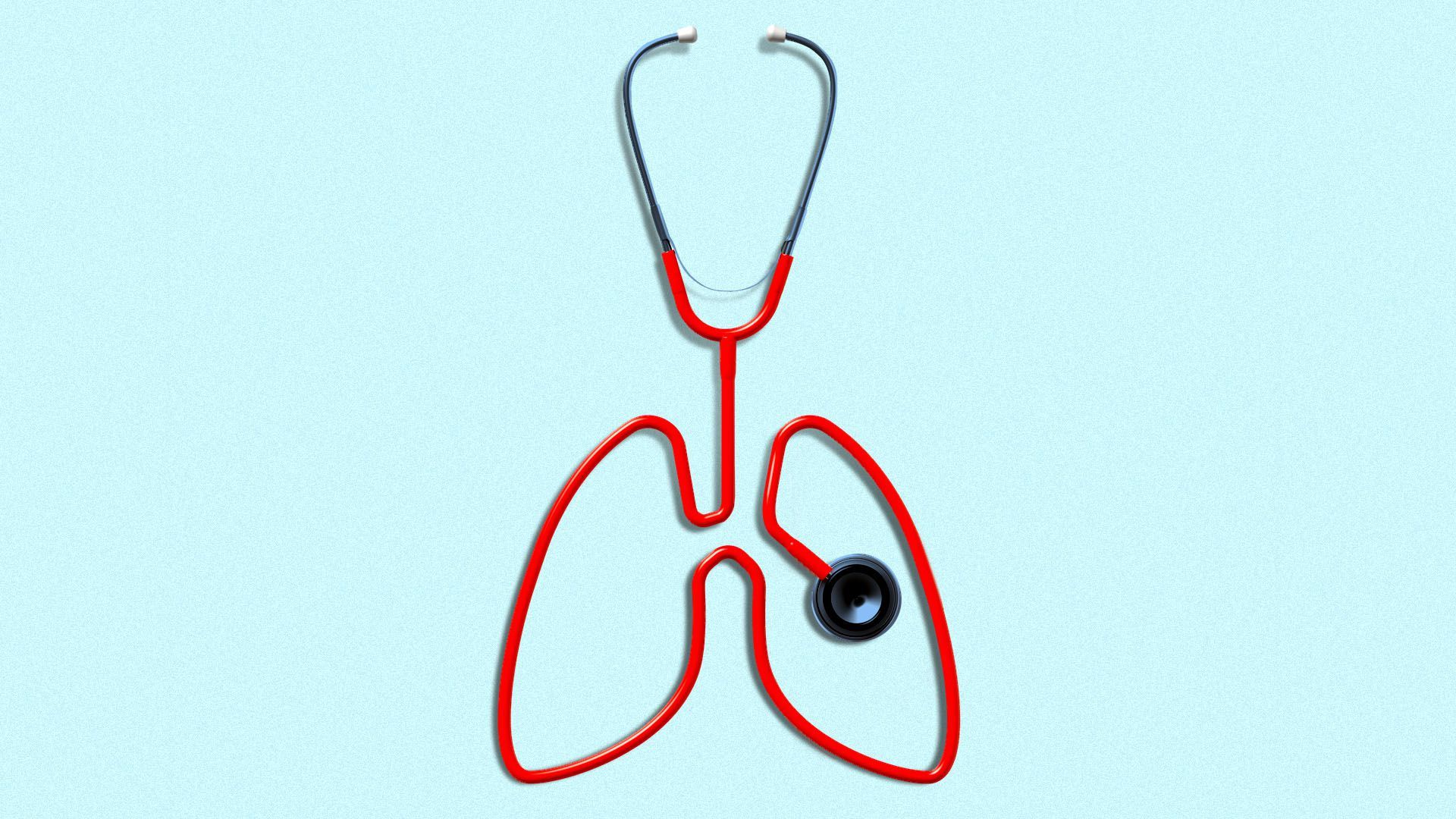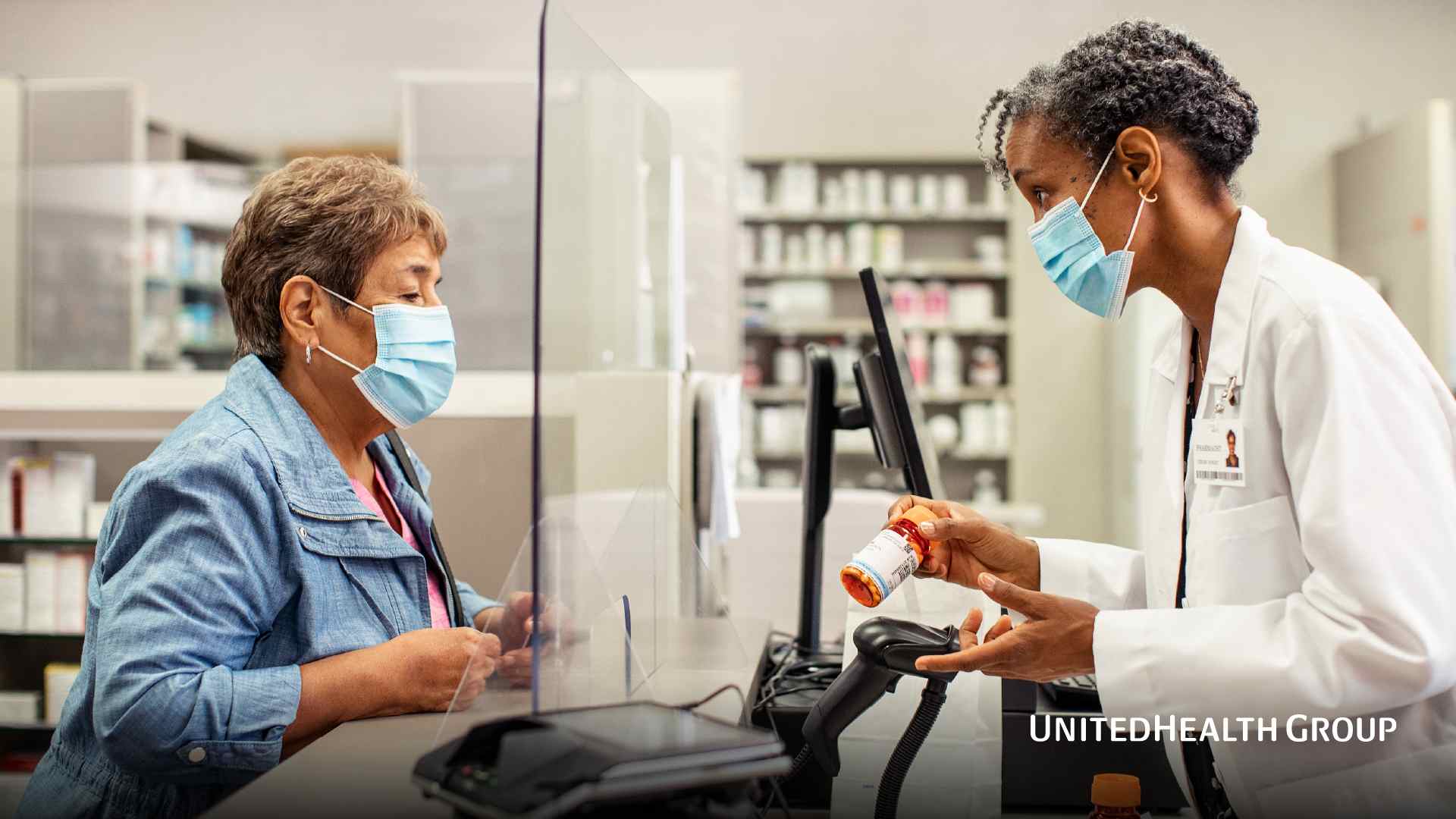| |
| |
| |
| Presented By UnitedHealth Group |
| |
| Axios Vitals |
| By Tina Reed · Sep 12, 2022 |
| Welcome back from the weekend, Vitals readers. Today's newsletter is 902 words or a 3-minute read. 🍺 On tap this week: President Biden will deliver remarks about the "Cancer Moonshot" today on the 60th anniversary of former President John F. Kennedy's "We choose to go to the moon" speech. Biden will also name Renee Wegrzyn the inaugural director of the new ARPA-H agency. - And ... we're getting back to business as usual in Congress with several hearings, including heavy hitters testifying before the Senate HELP Committee on the federal monkeypox response.
|
| |
| |
| 1 big thing: Congress hits home stretch renewing FDA user fee programs |
 |
|
| Sen. Richard Burr (R-NC). Photo: Joe Raedle/Getty Images |
| |
| Congress is entering a critical week in efforts to renew the user fees that help fund the Food and Drug Administration. The question is how much the must-pass bill will become a vehicle for other policy priorities, Axios' Victoria Knight writes. Why it matters: The FDA could begin sending furlough notices to staff if lawmakers don't settle on a mechanism for review of prescription drugs, medical devices, generic drugs and biosimilars. - But the focus extends beyond weighing the safety and efficacy of vaccines and therapeutics, to questions like whether the agency should have beefed up-oversight over cosmetics, dietary supplements and lab-developed tests.
What we're watching: The FDA bill usually gets bipartisan support but hit a roadblock in July when Senate Committee on Health, Education, Labor and Pensions Ranking Member Richard Burr (R-N.C.) demanded the removal of policy riders he deemed unnecessary. - Burr's push for a "clean" version of the bill didn't sit well with some Senate HELP colleagues and counterparts on the House Energy and Commerce who already passed more sweeping versions of the bill.
- "The crowded agenda and shrinking number of legislative days presents a real risk that extraneous provisions will be left out," Cowen analysts Eric Assaraf and Rick Weissenstein wrote, in reference to oversight of diagnostics, supplements and cosmetics.
The intrigue: Burr's objections surround extraneous provisions he said "endanger the development of drugs for rare diseases, imperil intellectual property rights, threaten Americans' access to breakthrough treatments and cures, and deter private sector innovation." Our thought bubble: If Burr prevails, many of the policy riders that don't make the cut could resurface in a follow-on bill to the 21st Century Cures Act next year. |
    |
| |
| |
| 2. 340B spending rises to $44 billion |
| Health providers bought $43.9 billion of outpatient drugs under the federal 340B drug pricing program in 2021, according to a new government breakdown of purchases. Why it matters: The program lets hospitals and clinics that see lots of poor patients obtain drugs at a discount and keep the savings. But in recent years, drugmakers have been scaling back their participation. - The Biden administration has been involved in an escalating feud with big manufacturers over that.
Details: Hospitals accounted for nearly $37 billion of the program purchases last year, per the government's accounting. - Discounted purchases rose $5.9 billion over 2020 figures, according to Drug Channels, which obtained the figures last month.
- The difference between list prices and discounted 340B purchases also grew, to $49.7 billion, approximating how much the covered entities collected, per Drug Channels.
Our thought bubble: The figures give some sense of the sheer size of a program that's become a major point of contention for pharma, safety-net providers and federal policymakers. Here's a helpful backgrounder on the program and why it's controversial from the Commonwealth Fund. |
    |
| |
| |
| 3. Scientists find air pollution link to lung cancer |
 |
|
| Illustration: Sarah Grillo/Axios |
| |
| Researchers identified a mechanism for how air pollution can trigger lung cancer in people who've never smoked, according to a study presented at a major oncology conference over the weekend. Why it matters: Poor air quality was attributed to more than 250,000 lung cancer deaths around the world in 2019. Warming temperatures from climate change are expected to worsen air quality. - The study, conducted at the Francis Crick Institute and University College London, could help researchers find better ways to prevent and treat lung cancer in people who've never smoked, they said at ESMO 2022 (European Society for Medical Oncology).
What they're saying: "The same particles in the air that derive from the combustion of fossil fuels, exacerbating climate change, are directly impacting human health via an important and previously overlooked cancer-causing mechanism in lung cells," said Charles Swanton, lead author from Francis Crick Institute, in a statement. - "The risk of lung cancer from air pollution is lower than from smoking, but we have no control over what we all breathe," he said.
|
    |
| |
| |
| A message from UnitedHealth Group |
| Helping lower out-of-pocket costs for consumers |
| |
 |
| |
| Starting in 2023, eligible UnitedHealthcare members will pay $0 out of pocket on critical medications: - Insulin for diabetes.
- Epinephrine for allergic reactions.
- Glucagon for hypoglycemia.
- Naloxone for opioid overdoses.
- Albuterol for acute asthma attacks.
Learn more. |
| |
| |
| 4. Monkeypox treatment enters Phase 3 trial |
 Data: CDC, U.S. Census; Chart: Erin Davis/Axios Visuals A smallpox treatment that's become a backstop for patients who test positive for monkeypox in the U.S., is going into a Phase 3 clinical trial to test its effectiveness, Axios' Arielle Dreher writes. Why it matters: While preliminary CDC data shows tecovirimat, or TPOXX, appears to be working to alleviate symptoms, only a placebo-controlled trial will be able to determine exactly how effective the drug is. - While monkeypox case rates appear to have plateaued nationwide, there were 677 new cases reported after Labor Day weekend, per CDC data.
- So far, more than 21,000 cases of monkeypox have been confirmed nationwide.
By the numbers: The AIDS Clinical Trial Group is running the trial at several locations nationwide, enrolling more than 500 people who test positive for monkeypox, including high-risk individuals and pregnant people. - Among 331 patients with monkeypox, 23 were hospitalized, the report shows.
- The majority of patients treated with tecovirimat recovered without symptoms by the time of their last assessment with a provider.
The bottom line: Despite some groups advocating for broader access, federal officials and agencies say they need clinical trial data first. |
    |
| |
| |
| 5. While you were weekending |
 |
|
| Illustration: Aïda Amer/Axios |
| |
| 👋 The founder of Alphabet's health unit Verily Life Sciences stepped down as CEO as the company targets commercial uses. Andy Conrad reportedly told employees that he'd use his role of executive chairman to "chart a path toward our independence." (WSJ) (Insider) 🏛 Three employers, including Home Depot, have appealed a $2.67 billion antitrust settlement with the Blue Cross and Blue Shield Association. (Modern Healthcare) 👀 Johnson & Johnson is using a "brazen new legal strategy" — declaring bankruptcy - to stop the litigation by consumers over its products. (New Yorker) |
    |
| |
| |
| A message from UnitedHealth Group |
| Helping drive affordability and combat high drug costs |
| |
 |
| |
| Beginning in 2023, eligible UnitedHealthcare members will pay $0 out of pocket on five critical medications, including insulin and epinephrine. Learn how we're working to make prescription drugs more affordable for the patients who rely on them most. |
| |
| 👏 Thanks to Adriel Bettelheim for editing and Bryan McBournie for copy editing today's newsletter. |
 | | Why stop here? Let's go Pro. | | |









No comments:
Post a Comment